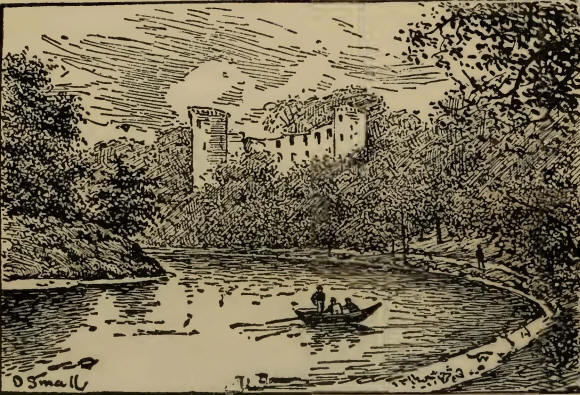|

Preface
The present so
persistently claims our attention that we are in constant danger of
forgetting altogether that past in which it has its roots; and our loss
in so doing is by no means insignificant. Those students of antiquity
who do not allow their interest in the past to blind them to the claims
of the present are continually emphasising the continuity of all life,
and protesting against the habit into which some scholars have fallen of
dealing only with phases of life. This is a protest which cannot be too
often repeated. The heroic days of old are as if they were not, and we
deliberately blind ourselves to every vision which would make us prize
more highly both our heritages and our privileges. There are many ways
by which we may preserve our historical continuity, but hardly any
method is likely to be so effectual as purposeful visits to those
ancient castles which remain as silent witnesses of an age that has
passed away.
Happily this method of preserving our touch with the past is as
agreeable to most men as it is effectual. There are few people capable
of resisting the fascination of an old building, especially if that
building has borne a part in some of the best-remembered episodes of a
nation’s history. But, even apart from known historical associations, an
old building, because it is old, possesses an irresistible charm, the
psychology of which Mr. Ruskin analyses in his own inimitable way. “The
greatest glory of a building,” he says, “is not in its stones nor in its
gold. Its glory is in its Age, and in that deep sense of voice-fulness,
of stern watching, of mysterious sympathy, nay, even of approval or
condemnation, which we feel in walls that have long been washed by the
passing waves of humanity. It is in their lasting witness against men,
in their quiet contrast with the transitional character of all things,
in the strength which, through the lapse of seasons and times, and the
decline and birth of dynasties, and the changing of the face of the
earth, and of the limits of the sea, maintains its sculptured
shapeliness for a time insuperable, connects forgotten and following
ages with each other, and half constitutes the identity, as it
concentrates the sympathy, of nations: it is in that golden stain of
time, that we are to look for the real light, and colour, and
preciousness of architecture; and it is not until a building has assumed
this character, till it has been entrusted with the fame, and hallowed
by -the deeds of men, till its walls have been witnesses of suffering,
and its pillars rise out of the shadows of death, that its existence,
more lasting as it is than that of the natural objects of the world
around it, can be gifted with even so much as these possess, of language
and of life.”
Download
The Story of Bothwell Castle here in pdf
format |

